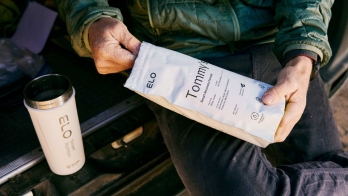Dean Karnazes: Beyond the Ultramarathon - A Conversation on Endurance, Nutrition, and Life
In an exclusive interview with Elo Health, Karnazes opens up about his introverted nature, the evolution of ultramarathons, nutrition strategies, and his holistic approach to longevity.
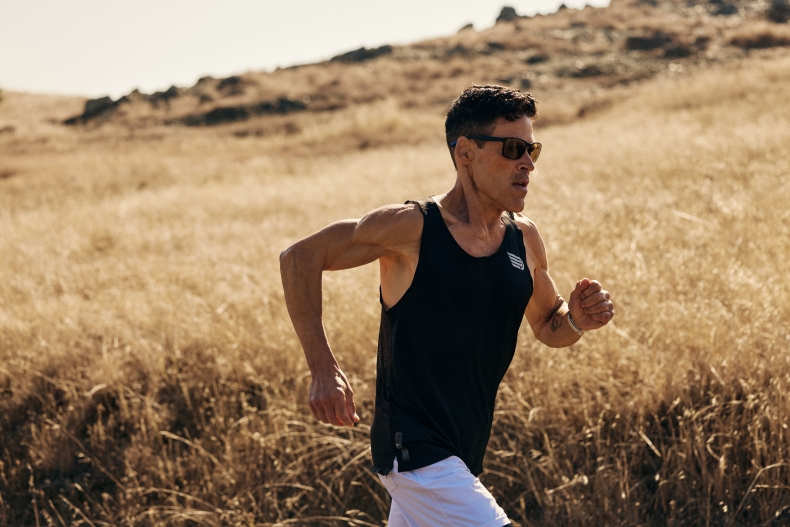
Many know you as THE endurance marathoner and someone who has pushed his mind and body to the absolute limit. Tell me about you. Share the Dean that some don’t know about…
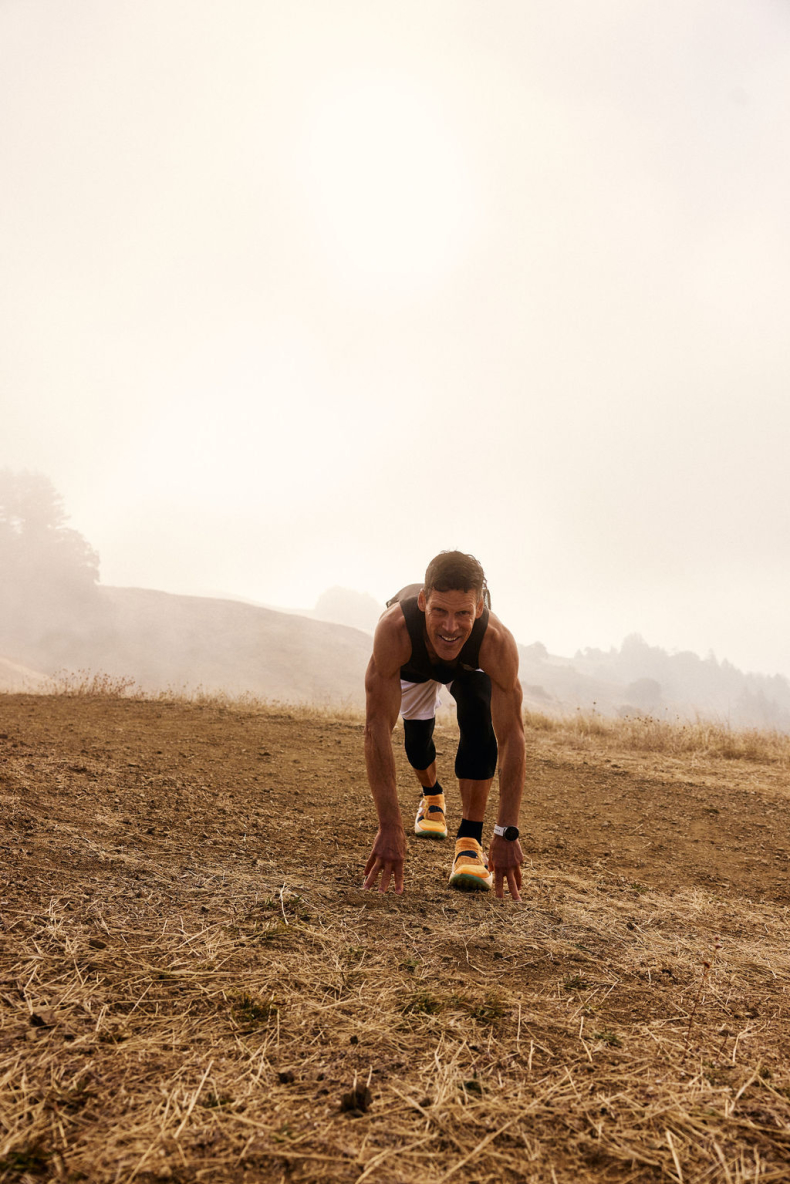
Dean Karnazes, an internationally recognized endurance marathoner, New York Times bestselling author, and philanthropist, reveals a side of himself that many might not be familiar with. While he is often perceived as gregarious and outgoing, Karnazes discloses, "deep down I’m actually quite introverted and enjoy time to myself." Contrary to the assumption of a bustling social life, he emphasizes that his training serves as his social outlet. Intriguingly, Karnazes doesn't view his rigorous training regimen as a sacrifice; rather, he finds joy in the solitary pursuit of pushing his mind and body to the absolute limit. Training is not just a routine for him; it is a lifestyle, a choice that he embraces wholeheartedly. "My training is my social life," he remarks, underscoring the profound connection he shares with his chosen path. In a world where social interactions are often central to personal connections, Karnazes finds solace in the solitude of his training sessions, relishing the time spent alone and surrounded by nature. The call of the outdoors and the rhythmic cadence of his footsteps against the earth are the companions he seeks and cherishes. Despite his introverted nature, Karnazes acknowledges the changing landscape with the advent of social media. Over the years, he has adapted to the demands of increased visibility, becoming more accustomed to engaging with people, conducting interviews, and navigating the intricacies of a digital era. Dean Karnazes, beyond the accolades and achievements, is a man who values the quietude of his own company, finding strength, inspiration, and fulfillment in the solitary journey of self-discovery through endurance and nature.
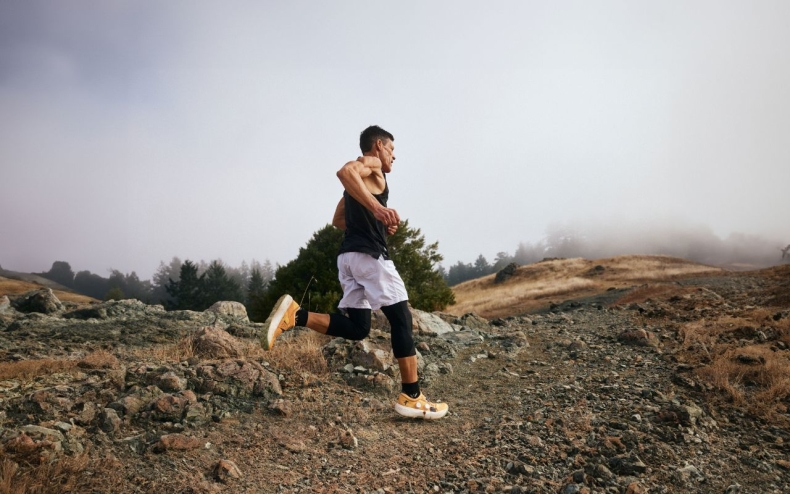
You did your first ultramarathon in 1992. Can you share the changes you have noticed in the sport but also trends or aspects that have changed in the area of nutrition?
Over the years since my first ultramarathon in 1992, the sport has evolved significantly, not just in racing and training techniques, but also in terms of nutrition. The equipment, once primitive, has seen substantial advancements in hydration, lighting, and footwear technology.
In the early days, training was more straightforward; I just went running without the sophistication of technical gear like wicking fabric or structured training blocks. Ultramarathons were about finishing rather than focusing on time and place, maintaining a grassroots feel that I still love.
Nutrition has undergone a dramatic transformation. Previously, the belief was that all calories were equal, whether from pizza or energy gels. Now, a more targeted approach is essential, considering the source of carbohydrates, protein ratios, and experimenting with various dietary strategies. I've explored high-fat, ketogenic diets and found that during ultra marathons, a high-fat intake, particularly through nut butters, keeps me energized and minimizes hunger.
My nutrition revolves around a Mediterranean-based diet, emphasizing monosaturated fats from olive oil and avocados, quality sea and plant-based proteins, and carbohydrates from fruits and sweet potatoes. I've eliminated bread and processed foods from my diet. Five days before a race, I cut back on insoluble fiber to avoid feeling heavy and bloated. The day before, I maintain a fasted state, finding it works best for me. Despite experimentation and trying various approaches, I adhere to a simple formula: "I always encourage people to listen to everyone and follow no one."
On race day, my nutrition includes gels, nutrition bars with starchy nut butters, and perpetuem, a 3:1 ratio of carbs to protein, providing a satisfying mouthfeel. I maintain a consistent water intake without super-hydrating, adjusting based on race-day conditions.
For race day and dieting tips, I caution against excessive calorie intake, witnessing individuals with fuel belts loaded with 30 gels. I recommend individuals monitor their caloric intake during the race, trying different approaches to find the right balance. It's about quality, not quantity.
What kind of goals do you still have as an athlete who has really done it all in the sport? How are you feeling about the sport as a whole now after all these years?
"I still love the sport just as much as the day I began," remarks Dean Karnazes. Despite having accomplished a great deal in the sport, he continues to actively participate in 10-20 marathons and ultras each year, maintaining a genuine enjoyment for racing.
Looking forward, Karnazes plans to pursue personal endeavors and exciting projects, such as the ambitious goal of completing 50 marathons in 50 states in 50 days. Additionally, he is collaborating with Charlie Engle on a unique project, aiming to run from the lowest place on Earth, Jordan's Dead Sea, to the highest, the summit of Everest. While acknowledging the logistical challenges involving passport visas and crossing territories, Karnazes and Angle embrace the difficulties, driven by their shared passion for the challenge.
"Beyond running, the kind of adventurous spirit of trying new things is a powerful force in my life," Karnazes adds, highlighting his broader commitment to embracing new challenges and experiences beyond the realm of running.
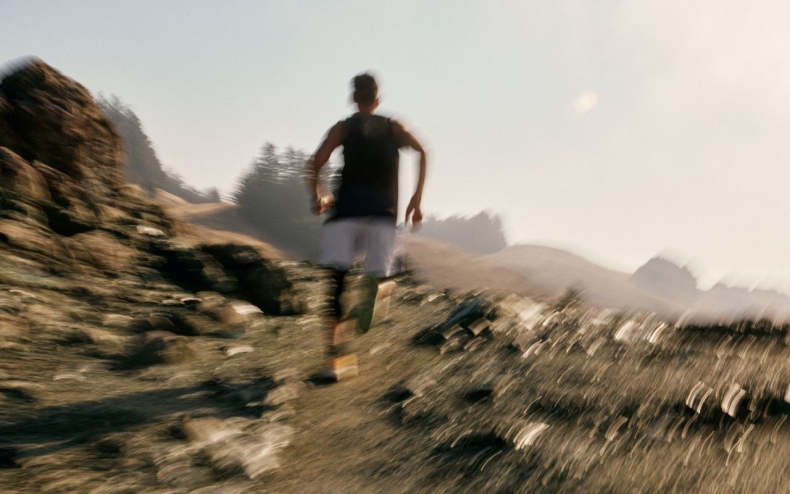
What are your goals outside of running?
Outside of running, Dean Karnazes has taken on a meaningful role as an Ambassador of Greek Tourism, leveraging his 100% Greek heritage to raise awareness about the historical roots of the marathon. Karnazes is dedicated to increasing recognition that the marathon originated in Greece in 490 BC, with Marathon being a specific place in the country. He emphasizes the unique foundation of the sport, tracing back to a historic run after a military battle to proclaim victory, where the messenger tragically lost his life at the end. Karnazes is passionate about bringing attention to the distinctive origins of the marathon, setting it apart from other sports.
Understanding the transformative impact of completing a marathon, Karnazes seeks to convey the significance of this achievement to a broader audience. He states, "When a lot of people run a marathon, it becomes a very significant milestone in their life. It changes you and is something that one is proud of." His goal is to foster a deeper understanding of the origins of the marathon, aiming to bring more meaning to the accomplishments of those who undertake the challenge.
Talk to me about longevity. What are you focusing on to keep running at your age?
Ensuring longevity as a long-distance runner is a multifaceted endeavor, and Dean Karnazes approaches it with a holistic perspective. He humorously emphasizes, "The best thing you can do as a long-distance runner is to choose your parents well."
Drawing from his Greek heritage, Karnazes notes the blue zone of Ikaria, known for having a high number of centenarians, reinforcing the connection between longevity and lifestyle. To optimize his overall well-being and promote longevity, Karnazes adopts a holistic 360-degree approach. This strategy goes beyond training and diet, encompassing elements such as quality sleep, effective stress management, mindful lifestyle choices, and maintaining harmonious interpersonal relationships. By integrating these principles into his life, Karnazes actively pursues a balanced and sustainable approach to running, emphasizing that longevity is not about one isolated factor but a harmonious combination of various aspects of health and well-being.
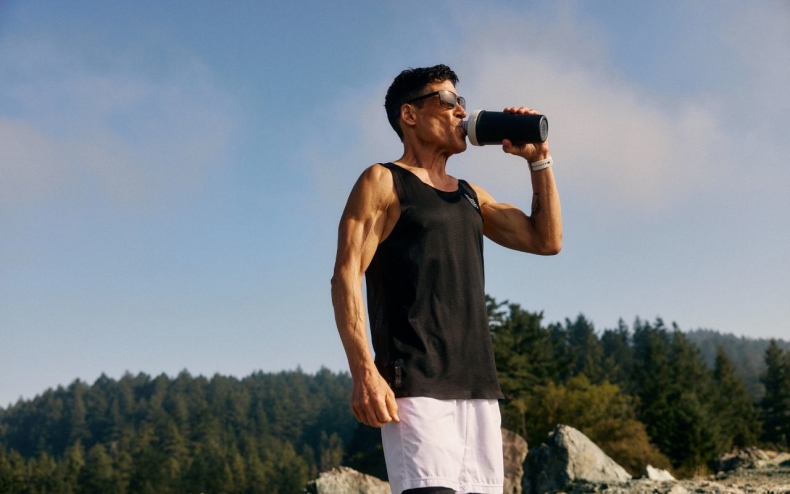
Do you have any habits/routines/mindset practices that make you show up as your best self on a daily basis?
A devoted student of classics, Dean finds inspiration in the teachings of ancient Greek philosophers such as Aristotle and Plato. Delving into their world and comparing it to the present, Karnazes strives to integrate their mindset and practices into his modern life. He believes that the ancient Greeks had a superior and healthier approach to living, particularly in contemplating the profound question of how to best live, a concept they extensively explored.
In his pursuit of a fulfilling life, Karnazes actively avoids becoming entangled in the day-to-day grind and societal norms. He notes: “I try to find something, whether love or sport, that transcends the everyday life of making a living or getting through the day to day life. I go for a run, I dance, I just do things that remind me how precious life is. No matter how difficult things are, I try to remember to do the things that I love and that make me feel most alive.”
What is the best way to get into ultra marathon running?
Getting into ultramarathon running requires a simple yet powerful approach, according to Dean Karnazes. His advice is straightforward: commit. The initial step involves overcoming the fear of committing to a race. Once committed, the sense of having a goal ahead sparks a motivating fire, urging individuals to prepare for the upcoming challenge. Karnazes suggests setting a goal for the first ultramarathon—finishing, no matter what it takes. Whether crawling, walking, or pushing through obstacles, the mindset of giving one's best, even in the face of the unknown, brings invigoration. Success lies in the commitment to cross the finish line or giving one's all until timed out.
As for the journey into ultramarathoning, Karnazes acknowledges different approaches. Some prefer the accountability of group training, others delve into extensive research, while some, like Karnazes himself, opt to sign up and learn along the way. When it comes to resources, Karnazes emphasizes the importance of looking inward and choosing a training method that aligns with individual preferences. Ultramarathoning offers a diverse and enriching experience, not only in the physical challenge but also in connecting with people from various backgrounds during races. Stripped of defenses and egos on the trail, participants engage in honest conversations about training, preparation, and life in general—an invaluable aspect of entering the sport and working towards personal goals.
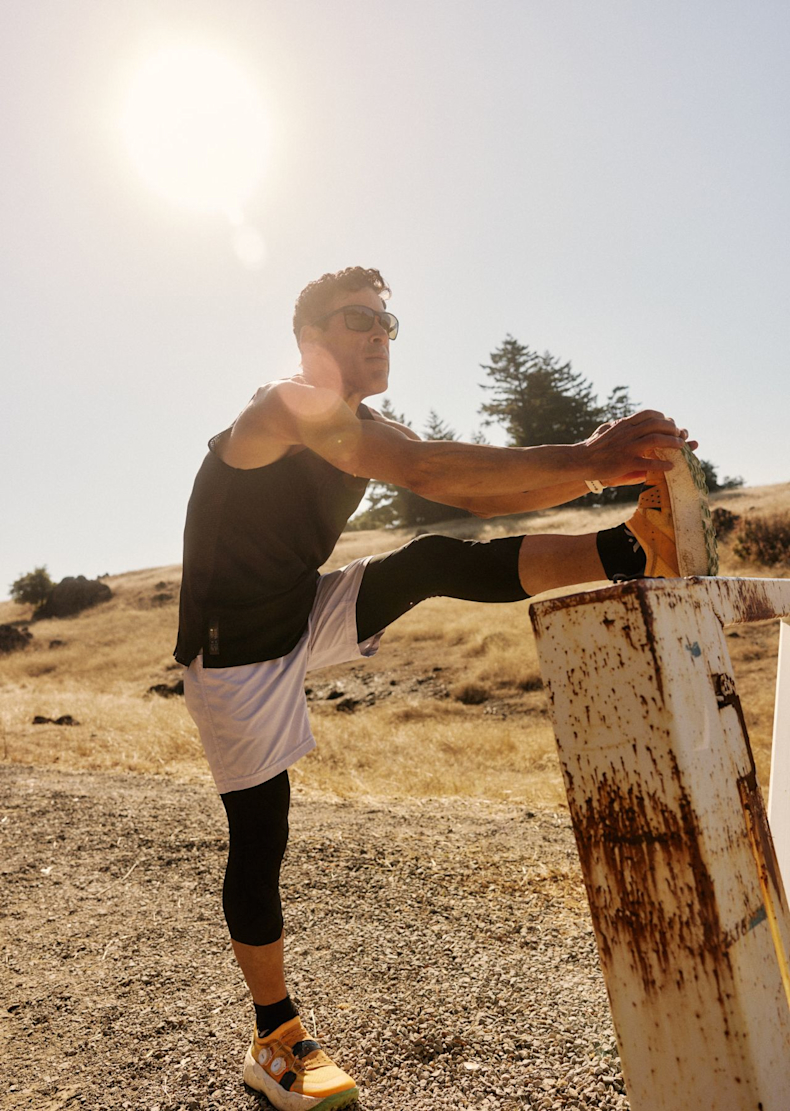
Can you share a bit about your overall methods for recovery. Have your methods changed over the years or have you stuck to the same routine?
For Dean Karnazes, recovery is a personalized and strategic process. Emphasizing the importance of good quality protein, he opts for oily cold water fishes like sardines, mackerel, or wild salmon for their rich omega-3 fatty acids, particularly beneficial for joint health. Post-race, Karnazes prioritizes protein over carbs, engaging in overhydration to aid in flushing out the system.
Active recovery is a key element of Karnazes' routine. The day after a race, he prefers running to sitting, believing that moving the body and elevating the heart rate helps eliminate byproducts of cellular breakdown from ultramarathons. In terms of supplementation, Karnazes advocates for smart supplementation, avoiding mega-dosing on insoluble vitamins and opting for tools like Elo Health for personalized supplementation based on individual needs and activities.
Karnazes takes a hands-on approach to recovery, incorporating simple yet effective practices like ice baths, which he finds immensely helpful. His dietary choices are intuitive and based on personal needs, recognizing the individuality in how people approach eating in ultramarathon sports. Additionally, he incorporates an electrolyte powder with ginger for dehydration, rounding out a comprehensive and tailored recovery routine.
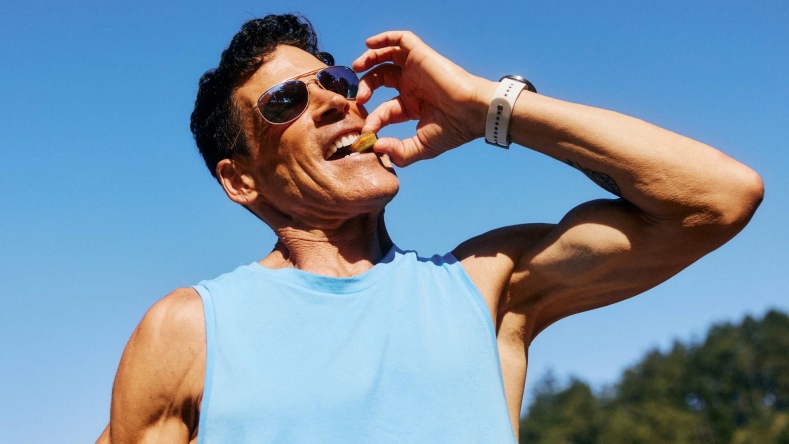
In regards to Elo, what made you interested in the company? What is it specifically about Elo that has made you keep trying their products?
In regards to Elo, I just thought that the product made so much sense. When you buy a vitamin off the rack, you get too much of something and not enough of other things. Whereas with Elo, you have one simple product you are cracking the code on supplementation. It is easy, it is convenient and targeted.
I previously used to megadose, and would see how my body was reacting to all of these vitamins and supplements that I was taking. Then I learned more about what it was doing to my body and how detrimental it was to performance and my health. After realizing this solution, that is what made me drawn to the product.
The product makes me feel confident. I know I am getting the nutrients I need. Having that confidence as well as the ease and convenience simplifies things in an otherwise complex world. Beyond omega 3 for my diet, I rely on food as my medicine. I focus a lot on sourcing the best types of food, making sure it has been grown appropriately and is the best sourced.
What would you say now to your 30 year old self?
If I could offer advice to my 30-year-old self, I would draw inspiration from ancient Greece and share the wisdom of Pericles: "The secret to happiness is freedom, and the secret to freedom is courage." I'd emphasize the importance of pursuing one's passion and finding the courage to break free from situations that hinder personal freedom, such as an unfulfilling job. Regardless of the nature of one's passion, there's always a way to make it a reality. Looking back on my life, it's remarkable to realize that I've spent over 30 years in the sport, dedicating my life to ultramarathoning and sustaining a career as a professional athlete. My journey stands as a testament to the idea that "if you follow your heart, it could take you to places that you could never dream of." The key lies in aligning your life with your passions and embracing the courage to pursue them.
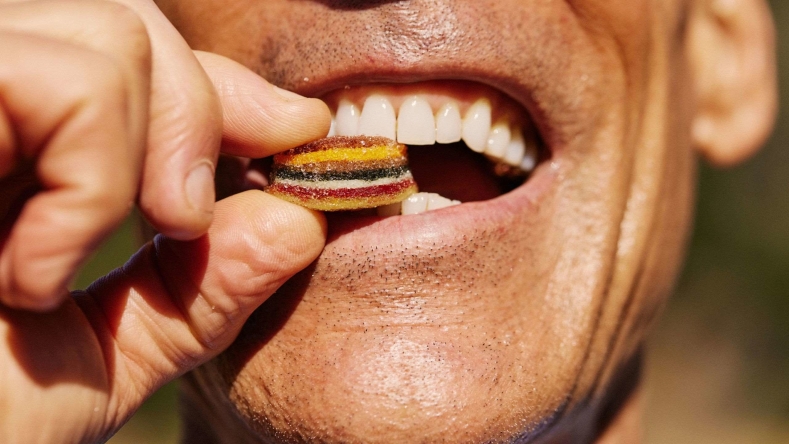
What advice would you give young athletes today who are trying to find their place in the world?
In his perspective, the key lies in maintaining focus. Recalling his grandmother's insightful words, “You can have anything you want, but you can’t have everything you want," he emphasizes the importance of identifying the most significant goal and directing attention towards it. He believes that if the pursuit of a goal feels like an overwhelming sacrifice, it might not be a genuinely meaningful objective. According to him, a lofty goal should feel earned, and one should willingly make the necessary sacrifices to wholeheartedly pursue it.
Check out these other interviews from Dean:

